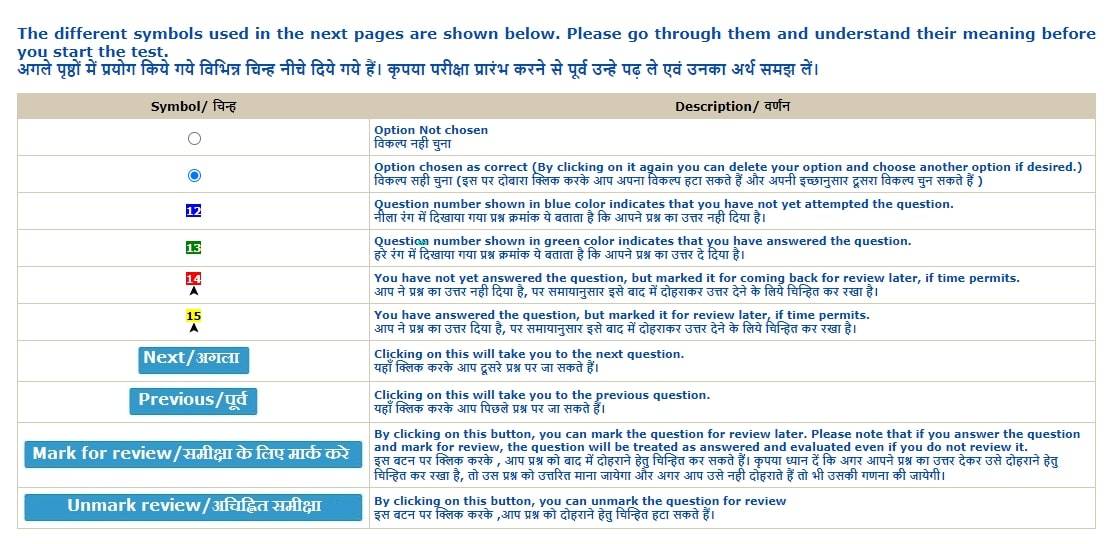
JEECUP Mock Test 2026: Joint Entrance Examination Council, Uttar Pradesh will release the JEECUP 2026 mock test online at jeecup.admissions.nic.in. Students will be able to attempt the mock test using their application number and password. Candidates are required to take the JEECUP mock test 2026 to check their preparation level for JEECUP 2026. The mock test of JEECUP 2026 shall be based on the JEECUP syllabus and paper pattern. The exam authority will conduct the JEECUP exam in CBT mode in May 2026.
- How to Access JEECUP Mock Test 2026?
- JEECUP Mock Test 2026 - General Guidelines
- JEECUP Mock Test 2026 - Highlights
- JEECUP Exam Pattern 2026
- JEECUP 2026 Mock Test FAQs
How to Access JEECUP Mock Test 2026?
Joint Entrance Examination Council, Uttar Pradesh will release the JEECUP mock test online on the official website. Candidates can refer to the steps provided below to attempt JEECUP mock test.
- Visit the JEECUP website at jeecup.admissions.nic.in
- Click on the JEECUP mock test link
- Select your group and click on 'Proceed' Enter your application number and password
- The instructions will be displayed on the screen
- After checking the guidelines, click on I Agree button and take the JEECUP mock test online
Commonly asked questions
To move to the next question, candidates have to click on 'Next'. To go back to a previous question, candidates have to click on 'Previous' in JEECUP exam.
Yes, mock tests are an important JEECUP preparation resource. Candidates must take the JEECUP mock test to get used to the exam format and time limit. The authority will release the JEECUP 2026 mock test online on its official website.
JEECUP Mock Test 2026 - General Guidelines
Commonly asked questions
The JEECUP 2026 mock test will be released 2 days before the exam. Candidates will be able to take the JEECUP mock test on the website, jeecup.admissions.nic.in.
Yes. The candidates will be able to navigate between the sections in the JEECUP mock test.
JEECUP Mock Test 2026 - Highlights
- Candidates have to register for the JEECUP exam to take the JEECUP mock test.
- The JEECUP mock test 2026 will have 100 questions to be answered by the candidates.
- Since the mock test is a replica of the entrance examination, the candidates are advised to attempt it to be familiar with the UPJEE pattern.
Commonly asked questions
The duration of the JEECUP mock test is 2 hours and 30 minutes or 150 minutes.
There will be 100 questions in the JEECUP mock test. It will comprise of MCQs only and candidates will have to select the correct answer out of four options.
JEECUP Exam Pattern 2026
The Joint Entrance Examination Council, Uttar Pradesh, will release the JEECUP exam pattern 2026 with the official notification. The following table is based on the previous year's notification.
| Particulars | Details |
|---|---|
| Mode | Computer Based Test |
| Duration | 150 minutes |
| Medium | English and Hindi |
| Type of Questions | Multiple Choice Questions (MCQ) |
| Number of Questions | 100 Questions |
| Marking Scheme | 4 marks will be given for every correct answer. One mark will be deducted for every wrong response. |
Commonly asked questions
The authority releases the JEECUP 2026 exam pattern through a notification at jeecup.admissions.nic.in. The JEECUP exam pattern consist of important details on the examination duration, marking scheme, total number of questions and more.
As per the JEECUP exam pattern students have to attempt 100 MCQs within 150 minutes. The test paper will be available in both Hindi and English. Candidates will get 4 marks for every correct answer they mark. There is no negative marking.
JEECUP 2026 Mock Test FAQs
Candidates can check the FAQs about the JEECUP mock test 2026 below:
Commonly asked questions
Candidates can access the JEECUP mock test online at jeecup.admissions.nic.in. Candidates will have to provide their application number and password to attempt the test.
The authority will announce the JEECUP exam date 2026 through its official notification at jeecup.admissions.nic.in.
Explore subject-wise topics asked in JEECUP
Select your preferred subject
JEECUP Exam
Student Forum
535 Institutes accepting JEECUP
Aligarh • Public
- 3 years
- |
- Full Time
Greater Noida • Private
Mahatma Jyotiba Phule Rohilkhand University
Bareilly • Public
- ₹ 75,000
- 3 years
- |
- Full Time
United Group of Institutions - UGI Allahabad
Allahabad • Private
- ₹ 1.01 Lakh
- 3 years
- |
- Full Time

